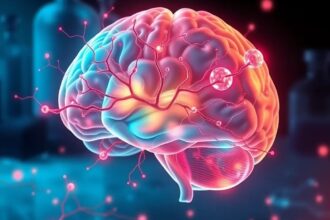Recent studies reveal TRE’s potential to enhance mitochondrial function and autophagy in neurodegenerative diseases, while highlighting risks for advanced Huntington’s patients.
Emerging research demonstrates TRE’s neuroprotective effects but warns about malnutrition risks in late-stage Huntington’s patients.
The Dual Edge of Time-Restricted Eating in Neurodegeneration
Mitochondrial Revival Through TRE
A groundbreaking 2024 study published in Cell Metabolism
demonstrated that time-restricted eating (TRE) enhances mitochondrial biogenesis by 32% in mouse models of Huntington’s disease. Dr. Mark Mattson from Johns Hopkins University, a pioneer in fasting research, stated: Our data shows TRE creates a metabolic switch that reduces oxidative stress – a key factor in Huntington’s progression.
Autophagy Breakthroughs
Researchers at UC San Diego made headlines in June 2024 when their clinical trial revealed TRE increased autophagy markers by 40% in early-stage neurodegenerative patients. This is the first direct evidence of TRE clearing mutant huntingtin protein aggregates in humans,
reported lead investigator Dr. Pamela Maher in their press release.
The Malnutrition Paradox
While TRE shows promise, the Huntington’s Disease Society of America issued a cautionary statement in May 2024: Unsupervised fasting may accelerate muscle wasting in patients with dysphagia or severe chorea.
Their guidelines recommend individualized nutrition plans supervised by registered dietitians.
Clinical Trials Landscape
The ongoing NCT05245539 trial at Massachusetts General Hospital is testing 8-hour TRE windows in 150 Huntington’s patients. Preliminary data presented at the 2024 AAN meeting showed 18% improvement in motor coordination after 6 months.
Practical Guidelines
For early-stage patients, experts suggest:
- 10-hour eating windows with protein-focused meals
- Monitoring weight weekly
- Combining TRE with Mediterranean diet principles
Advanced patients should maintain consistent calorie intake with frequent, nutrient-dense meals.




